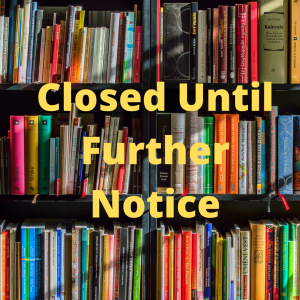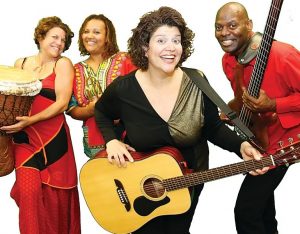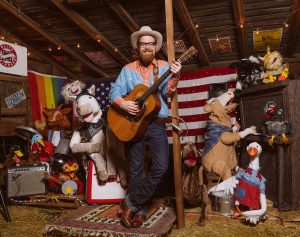Life for Children’s Musicians During the Pandemic
 It’s hard to believe that just a month ago life was still pretty normal for most of us. Social distancing was a term that was just starting to be used, we were learning that the coronavirus was also called COVID-19 and the virus hadn’t yet hit pandemic levels (a status it gained on March 11). For weeks it was a disease that was on foreign shores, on cruise ships, and localized in Washington state. Then in a matter of just a few short days in the middle of March, many of our lives dramatically changed. COVID-19 was coming and it was coming fast and we needed to be prepared. But how do you prepare for an unseen enemy that is mainly transmitted from person to person? You have to cease life as you know it.
It’s hard to believe that just a month ago life was still pretty normal for most of us. Social distancing was a term that was just starting to be used, we were learning that the coronavirus was also called COVID-19 and the virus hadn’t yet hit pandemic levels (a status it gained on March 11). For weeks it was a disease that was on foreign shores, on cruise ships, and localized in Washington state. Then in a matter of just a few short days in the middle of March, many of our lives dramatically changed. COVID-19 was coming and it was coming fast and we needed to be prepared. But how do you prepare for an unseen enemy that is mainly transmitted from person to person? You have to cease life as you know it.
As someone who works in a public library in Illinois, I experienced my profession change at light speed. On the morning of Friday, March 13 we were discussing cancelling storytimes for the next two weeks and removing furniture in order to properly social distance. By 5:00 pm that afternoon we were making the decision to close the library to the public the following Monday. By 11:30 am on March 16, as a result of rapidly changing circumstances, the decision had been made to not only close to the public, but to be closed completely through the end of March. By 3:00 pm on Saturday, March 20, the governor of Illinois had issued a Stay-at-Home order. And on March 31, that ordered was extended through April 30.
In an effort to help protect the health and safety of not just their staffs, but the public which they serve, libraries across the country quickly closed. And with every public library closure came children’s program cancellations. In a matter of days, children’s performers went from having schedules filled with spring and summer programs, birthday parties and festivals to having their calendars completely cleared. The pandemic has affected so many, but today I wanted to shine a light on the affects it has had on the children’s music industry. I asked Chicago-based, three-time GRAMMY nominee Justin Roberts, Marsha Goodman-Wood from the Washington, D.C. based Marsha and the Positrons, and Andy Furgeson a.k.a. Red Yarn from Portland, Oregon to give us a look into their experiences during this unprecedented time.
How has the pandemic affected your work as a children’s performer?
Andy: Before the pandemic, I was performing around Portland three to five times per week, visiting preschools and elementary schools, doing private shows and some touring on the weekends. Now I’m doing three shows per week on Facebook Live, guesting on other folks’ livestream series, making custom videos for kids’ birthdays, and picking up any other virtual work that I can.
 Marsha: Well, the first thing is that all my gigs — both performing and teaching — have been cancelled, so my income has gone down to almost zero. People can give tips for online shows, but many people are worried about their own finances, and they’re being asked to contribute to all the artists they follow, so that impacts whether and how much people can give. I appreciate every tip I’ve received, but to be honest, the amount that I’ve received in tips from online shows hasn’t even replaced the income from my first missed gig.
Marsha: Well, the first thing is that all my gigs — both performing and teaching — have been cancelled, so my income has gone down to almost zero. People can give tips for online shows, but many people are worried about their own finances, and they’re being asked to contribute to all the artists they follow, so that impacts whether and how much people can give. I appreciate every tip I’ve received, but to be honest, the amount that I’ve received in tips from online shows hasn’t even replaced the income from my first missed gig.
The second thing is that I’ve started to do online shows, so I’ve had to figure out the tech piece of doing that. I’m still learning how to do livestreaming video, and everything is changing very fast. It’s a bit weird not knowing how the audience is responding. I try to think of the audience and what they would be doing if we were in the same room, so I imagine the kids dancing along at home. However, I usually make decisions during shows based on the energy in the room — I can tell if they’re loving the show and full of energy, or if they’re shy or tired and I can judge how best to pump up the crowd. Without that in person feedback, it’s quite different.
What has been the biggest challenge for you?
Justin: The biggest challenge right now is just trying to figure out how to earn a living somehow when there is no clear end to the quarantine. Even when things start opening up again, I don’t foresee large gatherings being recommended in the near future. But this crisis is affecting everyone, from booking agents to venues and theaters. I can’t imagine any industry that isn’t going to be hurt badly by this epidemic.
Marsha: So far, the biggest challenge has been our family of five working on different things with simultaneous online meetings, conference calls, and online work happening all at the same time in a small space. For me, it means that I can’t really play music at home without disturbing people trying to do quiet work, or who need to hear/participate in a call or online meeting. At first, my kids weren’t doing distance learning, so I was able to do online concerts in the morning when I would typically play shows. Now, I’m planning to switch to the afternoon once a week so I’m less disruptive, and we’ll see how that goes. It also means that I can’t practice much, so if I’m playing songs I don’t play often, or trying something new or want to work on songwriting, I can’t easily do that, and sometimes can’t do it all.
Andy: The biggest challenge has been technological — figuring out how to offer high-quality livestreams with limited know-how and equipment. Thankfully, a few tech-savvy parents and friends have offered advice, so I’m gradually dialing in my system. Honestly, I feel very lucky to be a nimble, one-man operation with the basic tools and space I need to pivot to livestreaming. I also feel so thankful for my friends and fans, who have been so generous in donating during my livestreams. I know that a lot of people are hurting right now, so I feel incredibly blessed to be healthy and able to continue working and making some income for my family.
Have there been any silver linings?

Andy: Absolutely. It’s been amazing to experience a new kind of virtual connection with my audience. Kids are sending in drawings of my puppet characters, parents are writing the kindest notes of encouragement, families are sharing pictures and videos of their kids singing and dancing at home. My audience has definitely grown in the last few weeks. Through the magic of social media, lots of new folks have found my videos and music. Finally, it’s been inspiring seeing all of the amazing collaborations, community art projects, activism, and generosity going on right now, in the family music community and beyond.
Justin: Yes. When schools and offices started closing and concerts and festivals started getting cancelled, I tried to think of how I could help the families that would suddenly be stuck at home. The thought of kids being in front of screens all the time sort of depressed me and so I tried to think of ways to design projects and activities that would go beyond just watching music on a screen. I put up a page on my website called stuck at home with free craft projects, sheet music, musical scavenger hunts and other fun activities. The amazing part of this has been all the photos and videos that have been sent to me from parents and kids playing my songs together on unusual instruments like euphonium and clarinet and then seeing homemade shoebox guitars and other projects being completed by kids at home. I’ve also found livestreaming to be a really wonderful way to connect with kids and families in real time. It’s much different than just watching a video. We are able to respond to each other in almost real time and laugh and exchange our thoughts and feelings. When the stream is over, I get pictures of kids bringing their musical instruments up to the computer or working on the same project that I’m describing on the screen or playing along on their ukulele. Last week I did a cooking segment where we made homemade pizza dough and then this week I started getting all these pictures of pizzas. Yum!
Marsha: For sure! I’m all about trying to find positives and making the best of a difficult situation. One positive from all this is that by learning how to do video meetings I’ve started to connect with people I wouldn’t normally see in person. I can see musician friends perform online who I normally can’t see because they live far away or because we’re playing at the same time. I’ve gotten to see a few shows this past week, and look forward to checking out lots more of my friends’ online shows while I’m at home.
Another positive is appreciating nature and being outside. Since one thing we can do is go for a walk outside as long as we keep our distance, we can really enjoy nature. With fewer cars on the roads, we can listen to the birds who maybe we can hear a little better now. Also, when I see someone else across the way, I think we appreciate seeing each other and wave and say hello from afar maybe more often that we would have.
Finally, I think great art often comes out of difficult times, so as we’re feeling a lot of different emotions, some good could come out of channeling those emotions into songs, and other creative outlets. Before this, I was about 2/3 of the way done writing for my next record, and while it’s been a little difficult for me to do much songwriting in this new environment so far, I hope I’ll be able to do more writing and finish some songs I’ve set aside, and maybe write some new ones.
If fans would like to show their support by buying the music of their favorite performers, what are the avenues that most benefit the performers at this time?
 Justin: The best way to support musicians right now is by buying their music and merchandise directly from their websites, especially in physical form (CD and LP) or by paying for a download. In addition, many musicians are doing free live streaming concerts and shows. So, it’s super helpful if you can support these musicians via Venmo, Paypal, and other means for their live streams. It won’t make up the revenue lost from touring, but it may help that musician pay their rent or buy groceries.
Justin: The best way to support musicians right now is by buying their music and merchandise directly from their websites, especially in physical form (CD and LP) or by paying for a download. In addition, many musicians are doing free live streaming concerts and shows. So, it’s super helpful if you can support these musicians via Venmo, Paypal, and other means for their live streams. It won’t make up the revenue lost from touring, but it may help that musician pay their rent or buy groceries.
Justin: If you are in a position to support musicians on a grander scale, you might consider making a donation to Musicares, which provides emergency relief funding to musicians in need. And if possible contact your representative in Congress and make sure that they continue to support freelance artists as part of the relief packages and continue to support foundations that support artists like the NEA. You can follow @GRAMMYAdvocacy on Twitter or Facebook to get the latest details of how you can help. They often provide ways to reach your representative with a few clicks of a mouse and that can really help ensure that musicians are protected.
Andy: I’ve always been wary of replacing “in-real-life” human connection with virtual connection. But now I’m feeling how deeply nourishing, and really “real,” this virtual connection can feel. I think that no matter what happens, I’ll keep on doing livestream shows more regularly.
Marsha: I think the biggest thing we’ll take away from this difficult time is a deeper appreciation for being able to see each other in person. I hope that after it becomes safe to meet in groups, we’ll gather in crowds and enjoy lots of live music and support all the artists and venues that are having a hard time now.
9Now that we are a few weeks into this new reality, what words of encouragement do you have for fellow children’s performers?
Justin: I think it’s going to be a long and difficult road for many of us. I hope we can all stay safe and healthy at home and hopefully limit the spread of COVID-19. I would encourage everyone in the music community to pay close attention to the relief legislation that just passed. There is a wonderful website, MusicCovidRelief.com, that was put together by a consortium of organizations in the music community (including the Recording Academy) that will be very helpful for musicians.
I do think our mission as children and family entertainers will be essential during this difficult time and I hope we can provide some comfort and distraction and community to those who need it.

